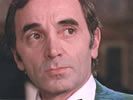Eye For Film >> Movies >> And Then There Were None (1974) Film Review

Adaptations of Agatha Christie's bestselling 'people-getting-picked-off-one-by-one-whodunnit' that shaped a thousand movie plots, seem to come around at least once every 20 years. For those of us who are children of the Seventies, this is the one most likely to spring to mind, all stylised shots and kitsch music. In fact Peter Collinson's adaptation epitomises the period in which it was made - right down to the Seventies-steeped cast, including Oliver Reed, Herbert Lom and Gert Fröbe.
The story, sees author Harry Alan Towers (writing as Peter Welbeck) return to the scene of the crime of his earlier 1965 interpretation (featuring the somewhat unlikely combination of Dennis Price and Stanley Holloway) - and, in fact, he would have another stab at those little Indians in 1989, only this time as producer. This adaptation is faithful to the book in terms of the characterisations presented but transposes the action from an island and adds a more feelgood twist to Christie's original ending.

The setting is the desert of Iran, where eight guests and two staff arrive by helicopter. Upon entering the palatial hotel, they realise that their host, Mr U N Owen, is not in attendance, that they are in the middle of nowhere and that they all have a rather sinister children's rhyme concerning Ten Little Indians framed on their bedroom wall. It's unlikely, however, that you're going to want to add this to your kids' stack of Beatrix Potter and Mr Men books, since the verse - dating back to the mid 1800s - sees the poor things despatched in a number of lurid ways, including being "frizzled up", "choked" and "chopped in half".
Undeterred, Charles Aznavor's Michel Raven sees this as the perfect cue to strike up a song - his signature tune The Old Fashioned Way - providing the funniest moment in the film, as, despite the fact his character is playing just a piano, a drum and bass accompaniment strikes up. But all frivolity is quashed when a disembodied voice (Orson Welles at his most sombre) begins to recite a litany of murders that the assembled guests are alleged to have got away with. From that point on its just a case of waiting for the characters to get picked off one by one in the manner of the verse as they - and the viewer - attempt to work out which one of them is the mysterious Mr Owen, before it's too late.
Collinson - probably best known for directing The Italian Job - makes the most of his confined settings. He uses the full depth of the frame and often shoots from interesting angles, or with furniture between the camera and action to break up the scenes and stop things from becoming too stagey. He frequently shoots the characters in voyeuristic fashion from a distance, too, adding to a sense of them being watched. Particularly memorable is a scene across a snooker table between the Doctor (Herbert Lom) and Judge (Richard Attenborough), which develops a creeping sense of menace.
There is no doubt this is kitschy, and while Lom and Attenborough convince, Reed seems curiously stifled by the role of the louche Hugh Lombard (renamed from the book's Philip for reasons best known to Towers), and Elke Sommer is called on to do little other than act as set dressing and scream occasionally. Still, at least the book is treated seriously, some of Collinson's framing is memorable and the central 'who's-doing-it' conundrum holds firm despite Towers' meddling with the mystery. A guilty pleasure for those who like their murder mysteries the 'old-fashioned way'.
Reviewed on: 15 Feb 2010

















